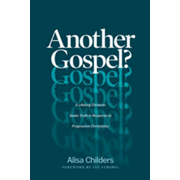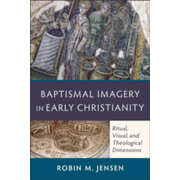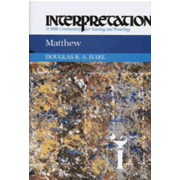 Our study for this Twentieth Sunday after Pentecost encompasses the Wedding
Feast as told from the Gospel According to Saint Matthew. This lesson speaks a
profound story to us concerning our participation in the great celebration prophesied
for the kingdom of heaven. We ask, “Who is invited? Who ignores their invitation? Who
is admitted but has nothing to wear? And who will surely be thrown out.”
Our study for this Twentieth Sunday after Pentecost encompasses the Wedding
Feast as told from the Gospel According to Saint Matthew. This lesson speaks a
profound story to us concerning our participation in the great celebration prophesied
for the kingdom of heaven. We ask, “Who is invited? Who ignores their invitation? Who
is admitted but has nothing to wear? And who will surely be thrown out.”
As the
parable teaches, we each may see where we fit in…
And again Jesus spoke to them in parables, saying, “The kingdom of heaven may be compared to a king who gave a marriage feast for his son, and sent his servants to call those who were invited to the marriage feast; but they would not come. Again he sent other servants, saying, ‘Tell those who are invited, Behold, I have made ready my dinner, my oxen and my fat calves are killed, and everything is ready; come to the marriage feast.’
But they made light of it and went off, one to his farm, another to his business, while the rest seized his servants, treated them shamefully, and killed them.
The king was angry, and he sent his troops and destroyed those murderers and burned their city. Then he said to his servants, ‘The wedding is ready, but those invited were not worthy. Go therefore to the thoroughfares, and invite to the marriage feast as many as you find.’ And those servants went out into the streets and gathered all whom they found, both bad and good; so the wedding hall was filled with guests.
“But when the king came in to look at the guests, he saw there a man who had no wedding garment; and he said to him, ‘Friend, how did you get in here without a wedding garment?’ And he was speechless. Then the king said to the attendants, ‘Bind him hand and foot, and cast him into the outer darkness; there men will weep and gnash their teeth.’ For many are called, but few are chosen.”
(Matthew 22:1-14)
 |
The Harbinger II: The Return By Jonathan Cahn |
Royal
Wedding Planner…
To include this message, the gospel writer seems to
have incorporated material from a lost source not available to us. Thus having
shared text from a reconstructed document that we simply call “quelle” ( often abbreviated to
be called “Q”, which means “source”), we have in Matthew a story that is also
found in Luke (Luke 14:16-24) . We note the thrust is similar in both gospel
narratives. However, we also note when comparing the two stories closely, that
major differences exists between them. A quick perusal of biblical scholarship
shows that several possibilities exist for the wavering of content. First, it
is certainly possible that the analogy was told in parable form on more than one occasion
by our Lord, the difference being explained that existing variances were spoken
by Jesus in each telling.
Or secondly, we may also consider that a common oral tradition existed that was likely concise. That oral story existed as an account remembered and passed down. This basic oral tradition was used by scholars to construct the “Q” source document, This latter basic story was then by the power of the Holy Spirit, retold by each author to relate as a targeted story tailored for their particular communities.
Or secondly, we may also consider that a common oral tradition existed that was likely concise. That oral story existed as an account remembered and passed down. This basic oral tradition was used by scholars to construct the “Q” source document, This latter basic story was then by the power of the Holy Spirit, retold by each author to relate as a targeted story tailored for their particular communities.
I fear that
at present, there is no way to know which path of development is certain.
However, for several reasons, given the late first century writing of both
gospels, I favor the second theory.
Why you may wonder? To explain my thought, first it seems that the material here was told as enhanced by the author in order to stress certain historical aspects for his audience. Let's entertain that the Lukan form is the closest to the original because of its simplicity and brevity, and during the same decade Matthew offered a more elaborate story particularly suited for his problematic situation.
Consider that Luke, being more distant in that he was not a Jew… struggled for accuracy and brevity. Second, we see that blessed Luke reflected his overall penchant in his writings for the “lowly and the poor”, thus the gospel says the inviting person is simply a benevolent man. However, Matthew took a different track. Matthew related that the invitation came from the “king” ( in the Greek – βασιλι ). This being so, the differences in audience between Luke and Matthew’s witnesses, might give evidence that the received “Q” text was retained and influenced later by the community to which the story was given.
It may be reflected by the Matthean gospel writer that many in that church considered themselves as more urban, learned, and genteel than others. Could this mindset have been caused by a haughty spirit in a community that stemmed from a large urban synagogue? Cannot we think that this issue was a specific harm to Matthew’s community formed from the grotto of early Christian separation from its Jewish base? Was it this attitude that influenced his writing of the “Q” story so that the “higher” station appeared for the originator of the banquet? Or lest we read too much into the text, was Matthew's offering simply a high Hebraic theological expression for the person of God, over against the lowly and more earthy picture provided by Luke? This follows similar lines found in the Genesis accounts, between the "E" and "J" sources. Of such stylist thinking we find that the first and second chapters of Genesis are attributed to two differing writers by many modern biblical scholars.
Why you may wonder? To explain my thought, first it seems that the material here was told as enhanced by the author in order to stress certain historical aspects for his audience. Let's entertain that the Lukan form is the closest to the original because of its simplicity and brevity, and during the same decade Matthew offered a more elaborate story particularly suited for his problematic situation.
Consider that Luke, being more distant in that he was not a Jew… struggled for accuracy and brevity. Second, we see that blessed Luke reflected his overall penchant in his writings for the “lowly and the poor”, thus the gospel says the inviting person is simply a benevolent man. However, Matthew took a different track. Matthew related that the invitation came from the “king” ( in the Greek – βασιλι ). This being so, the differences in audience between Luke and Matthew’s witnesses, might give evidence that the received “Q” text was retained and influenced later by the community to which the story was given.
It may be reflected by the Matthean gospel writer that many in that church considered themselves as more urban, learned, and genteel than others. Could this mindset have been caused by a haughty spirit in a community that stemmed from a large urban synagogue? Cannot we think that this issue was a specific harm to Matthew’s community formed from the grotto of early Christian separation from its Jewish base? Was it this attitude that influenced his writing of the “Q” story so that the “higher” station appeared for the originator of the banquet? Or lest we read too much into the text, was Matthew's offering simply a high Hebraic theological expression for the person of God, over against the lowly and more earthy picture provided by Luke? This follows similar lines found in the Genesis accounts, between the "E" and "J" sources. Of such stylist thinking we find that the first and second chapters of Genesis are attributed to two differing writers by many modern biblical scholars.
If we look at a section of scripture from the
prophets, however, we see that our Lord laid out that the Father’s will was
that both high and low of station would be treated the same… in that all faithful
believers would be invited to the feast. We note the repetitive strain of “all”
found in earlier witness…
On this mountain the Lord of hosts will make for ALL peoples a feast of fat things, a feast of wine on the lees, of fat things full of marrow, of wine on the lees well refined. And he will destroy on this mountain the covering that is cast over ALL peoples, the veil that is spread over ALL nations. He will swallow up death for ever, and the Lord GOD will wipe away tears from ALL faces, and the reproach of his people he will take away from all the earth; for the Lord has spoken.
It will be said on that day, “Lo, this is our God; we have waited for him, that he might save us. This is the Lord; we have waited for him; let us be glad and rejoice in his salvation.” (Isaiah 25:6-9)
Therefore, the prophetic voice of
Isaiah had long before the writing of Matthew, predicted the feast for all persons
who would respond to God’s loving invitation. The word “all” occurred several
times. From this inheritance, our Lord Jesus very likely told the Parable of the
Feast before the disciples and others who were in attendance at the temple in
Jerusalem. Therefore, much to the chagrin of the temple powers, Jesus warned
those in Israel who had not responded rightly and meekly to his faith invitation… an invite was
being made to all by God even as he spoke.
After our Lord’s crucifixion and Resurrection,
however, the original feast story was passed along by Luke as occurring in a humble
gathering by a grateful man, and by Matthew the gathering was in a great wedding feast.
In
Matthew the respondents to the invitation were clearly defined as first those
who tossed away the invitation because what accomplishments they did, or were presently
doing… were clearly considered by them as more important. Note that Matthew did
not relate the specific reasons for their declining of invitation, but shortly described
persons as horridly killing those sent… and rendering those who did not respond
to the celebration as most horrid. This self justification mirrors the biblical attitudes of those carrying a "works"attitude. They saw themselves beyond the need for accepting invitation.
We now must ask, "Does this reflect the persecutions of the early Jewish Christians that broke away from the synagogue?" It surely seems so. Thus it follows that the fate of those who do not respond in good faith to God’s invitation to the marriage feast of his Son, Jesus… the Messiah... would be punitive?
We also may ask whether this was a prophetic foretelling by Jesus about coming apocalyptic events, or a hindsight observation by Matthew of what had already happened during the fall of Jerusalem and the fate of Masada (70 A.D.)? I consider that both prophetic instances are likely.
We now must ask, "Does this reflect the persecutions of the early Jewish Christians that broke away from the synagogue?" It surely seems so. Thus it follows that the fate of those who do not respond in good faith to God’s invitation to the marriage feast of his Son, Jesus… the Messiah... would be punitive?
We also may ask whether this was a prophetic foretelling by Jesus about coming apocalyptic events, or a hindsight observation by Matthew of what had already happened during the fall of Jerusalem and the fate of Masada (70 A.D.)? I consider that both prophetic instances are likely.
In the story discourse, I think
that Matthew clearly defined those who were finally invited to the feast as
being both Jews and Gentile ( the good and the bad? ). This was not a statement
reflecting on kosher impurity or sinfulness. The text rather stated dependence not
on human works… but on those holding to faith given in Christ. However, carefully note that a certain preparation was needed
for attendance for the Christian feast. Could an impoverished and sinful person
afford to go? Here, I believe… is where we really find some very good news.
 |
Another Gospel? A Lifelong Christian Seeks Truth in Response to Progressive Christianity By Alisa Childers |
Reply Requested?
We note that wedding apparel was previously prepared
for those invited… a wedding robe! Could this have symbolized the baptismal robe
which cannot be humanly earned or made… a heavenly-prepared garment freely supplied by the divine Giver? I believe so. My opinion is based upon both scriptural
tradition and the perspective of a person who does not possess a quality robe of my own.
Let us not be that one, a phony entity who attempted to crash the party without a faith garment, to be tossed
from the Light into darkness!
To members of the Church today, it seems that this is the message the lesson relates to us concerning our meager self-justifications and preparations. This gospel clearly rails against works righteousness, and sets the feast attendance to be governed only by the bountiful and graceful gift of God, who supplies our baptismal robe and faith.
To members of the Church today, it seems that this is the message the lesson relates to us concerning our meager self-justifications and preparations. This gospel clearly rails against works righteousness, and sets the feast attendance to be governed only by the bountiful and graceful gift of God, who supplies our baptismal robe and faith.
 |
Baptismal Imagery in Early Christianity: Ritual, Visual, and Theological Dimensions - eBook By Robin M. Jensen |
Remember! Sinful and unpretentious persons
were forgiven and supplied with the right clothes. Once admitted to the feast, they
enjoyed a revelry that shall have no end. This is the salvation message supplied by
this story… first by Jesus, and then passed along by his servant Matthew. Both
Jesus and Matthew contended with a stiff-necked people who disdained their
dependency upon our Creator. Matthew followed Jesus message, therefore, clearly
defining humble persons in his community as those who were to be “gathered”, into the
kingdom… not by their own doing… but by the grace of Almighty God.
Our Lord Jesus appropriately ended the parable… using the maxim as clearly stated in this
gospel written in the later decades of the first century. Our Lord Jesus
taught… and Matthew echoed rightly… that “many are called, but few are chosen.”
We may ask ourselves then: “Are we those who foolishly consider ourselves to be
more educated, wealthy or genteel than the lowly who are kneeling and faithful?” If so,
we shall be cut off. We shall be cast out. Or are we rather those who are the undeserving chosen, whether described
as high or low by our neighbors? Can we be those who simply and graciously accept forgiveness
and the wondrous gift of the Spirit’s invitation into the kingdom of God? Which
indeed.., are we? Which do you want to be? Don’t you want to show others your undeserved invitation... and deliver theirs?
We welcome you to watch a video set to the topic for this week...
May God Bless Your Wearing of Your Baptismal Garment!


Matthew emphasizes "doing" a great deal....."Not those who cry Lord, Lord.....but the one who DOES the will of the heavenly Father".....yes, once baptized, great, then what? just say "I was baptized"?
ReplyDelete